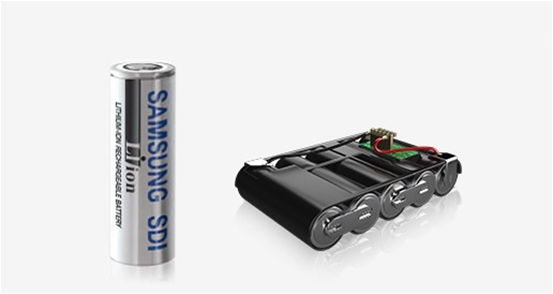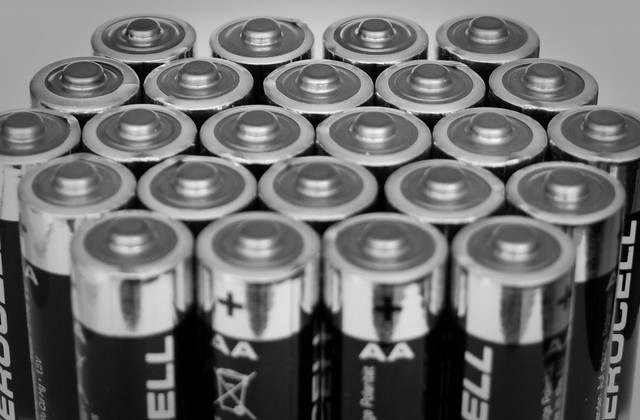How long do lithium ion rechargeable batteries last?
Nov 18, 2019 Pageview:6970
How long does a lithium ion rechargeable battery last for?
Lithium-ion batteries have the tendency to lose capacity over time, this problem is called "aging of the battery". Unfortunately, it is irreversible and unavoidable.
For high-end Li-ion batteries, after you hit the 1000 charge cycle, the capacity is reduced to only 20% of its original capacity. To fully imagine this process, imagine that whenever you recharge your electronic device you shave a few seconds of its maximum battery life. Take into consideration that discharging and charging your battery in erratic weather conditions will decrease your battery's life span dramatically.
To summarize, a Li-ion battery typically has a lifespan of around two to three years. Alternatively, 300 to 500 charge cycles, so whichever reached first. One charge cycle is calculated as the period of use from fully charged to fully discharged and dully recharged once again.
It is worth noting that you should only use specified adapters to charge your batteries. Using an undesignated charger will not only harm your battery but can be very dangerous as you risk the hazard of fire.
Lithium-ion batteries are a problematic part of modern electronic devices. Unfortunately, until the moment these lines were written, there is no technology better than Lithium-ion to be used in batteries. Lithium-ion batteries have the tendency to lose capacity over time, this problem is called "aging of the battery". Unfortunately, it is irreversible and unavoidable.
The degradation of Li-ion batteries has nothing to do with the structural degradation of the electrode materials inside the battery during the charge and discharge cycles.
Can a dead lithium ion battery be recharged?
Sometimes it is possible to revive a dead Lithium ion battery. There are some steps you can take to try reviving your dead Lithium ion battery.
Try reading the Voltage
Remove the battery from whatever device they are powering; take a voltage reading via your voltmeter. If your battery is rated 3.7V and your voltmeter reads only 1.5V that may mean that your battery is in deep sleep. That is a state a Lithium ion battery goes into if it was drained too much.
Connect a compatible charger to your battery
There are some chargers on market with "wakeup, recovery, or boost" features. These chargers can recover your Lithium ion battery and get it back from its deep sleep state. It is worth noting, that you should not try this procedure if your battery's voltage reads below 1.5V.
Keep charging for a minute and then check
Leave your battery charging for a minute, then remove it and take a voltage reading. If you find nothing has happened do not be disappointed, not every dead battery can be revived.
Perform a charging cycle
After making sure your battery is awake once again and charging. Give it a full charge. After fully charging put the battery in a heavy load device, like an LED lamp and discharge it.
To improve the performance freeze it.
After the previous step, seal the Lithium ion battery in a bag and ensure that no moisture would enter this bag and put it in your refrigerator. Keep it for about 24 hours, and then take it out. Let it thaw for around 8 hours at room temperature.
Charge the battery once more
After that charge the battery and use it as you normally would. You would notice an improvement in its performance. However, do not expect it to be 100%
Is it better to keep lithium ion batteries charged?
Lithium-ion batteries continue to slowly self-discharge when stored or even when not used. That is why it is recommended to check the battery status every now and then even the battery is not used.
The time Li-ion batteries take to self-discharge when stored depends on several things. The most important factor of those factors is the temperature the battery is stored in. Higher temperatures above 20oC reduce the battery storage life tremendously.
If by any chance, you are experiencing weather that is below the 0oC or above 40oC DO NOT, charge your battery at all. Charging batteries in these conditions may damage the battery and cause risk to your person as the battery may explode or catch fire.
Before storage, it is recommended to charge or discharge your Li-ion battery to around 40% and then store in a cool place like the refrigerator (do not use the freezer, and wrap your battery in an isolation cloth or bag). If you are going to store your battery for more than six months, then you need to charge your battery to around 50% every six months of storage (at least). When storing a Li-ion battery, remove it from the product. Do not store the battery while attached to the product.
If you performed the above steps when storing a Li-ion battery, you can reach a storage time of almost two and a half years.
Lifetime evaluation of the Li-ion battery is very tough to determine though. That is why; big companies are reluctant to issue a specific time warranty for Li-ion batteries. That is due to the fact that if you want to know the behavior or a Li-ion battery over the span of eight years, you have to actively test it for eight years in all conditions to make such a claim.
- Prev Article: Lithium Battery Waste Disposal – Recycling Solution
- Next Article: Where do you dispose of lithium batteries?
Leave Message
Hottest Categories
-
Hottest Industry News
-
Latest Industry News











